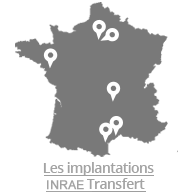 IMAGE: Innovative Management of Animal Genetic Resources
IMAGE: Innovative Management of Animal Genetic Resources
Objectives
IMAGE aims at enhancing the use of genetic collections and upgrading animal gene bank management. IMAGE will further develop genomic methodologies, biotechnologies and bioinformatics for a better knowledge and exploitation of animal genetic resources.
The ultimate goal of the project is to demonstrate the benefits brought by gene banks to the development of more sustainable livestock farming systems. The main approaches of IMAGE were presented:
- Involving the stakeholders from the beginning: a first meeting will take place at the opening of the 67th annual meeting of the European Association of Animal Production (EAAP) in Belfast, Northern Ireland, on 28 August 2016; different types of stakeholders are relevant for IMAGE and targeted meetings may be needed on a case by case basis;
- Improving the reproductive quality of the gene bank samples and their ‘usability’ in the field, with the development of new protocols and the perspective to assess the potential of new technologies to improve the cost-efficiency of using gene bank samples;
- Improving the connection between gene bank managers and supporting the set-up of the European Gene Bank Network for Animal Genetic Resources (EUGENA) in connection with the European Regional Focal Point;
- Assessing the potential of genetic diversity present in genetic collections by genomics and data integration;
- Facilitating access to information and resources by developing a new model for data integration in a web portal, and registering collections into the BioSamples database of EMBL-EBI;
- Developing, testing and demonstrating strategies and scenarios to facilitate the use of this diversity and to enhance synergy between gene banks and on-farm management of genetic resources; and
- Increasing awareness about the value of gene banks by a multi-faceted dissemination programme, including decision support tools for breeds and North-South workshops for capacity building.
EC Funding : 7M € (budget 9.013.156€)
Duration : 4 years
Start : March 1st 2016
Coordinator : Michele Tixier Boichard - michele.boichard@inra.fr
Project Manager : Irina Carpusca - irina.carpusca@inra.fr
Website : www.imageh2020.eu




 SAPHIR:
SAPHIR: 
